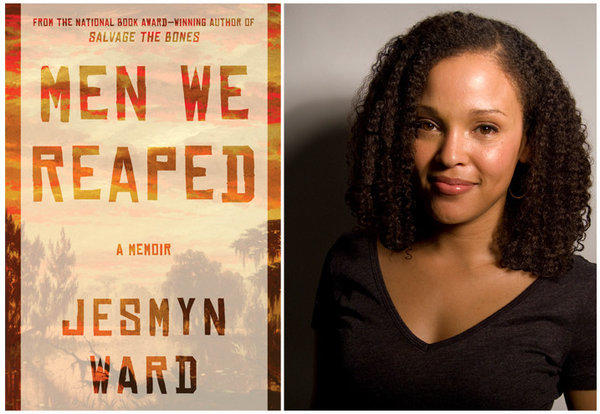
I finished this book a month ago. Usually, I try to write up my responses to the stuff I read in a more immediate manner. You know, while it’s still raw and right there in my focus. But not with this piece of art. Why? Because I don’t think I would have been coherent if I wrote this right after I finished the book. This memoir left me an absolute mess. The words you see now, if written then, would have been without composure. It would have just been an emotional outpouring that would have lost you on the majesty of the work at hand.
Young black men are dying. If I had to sum up the memoir in one sentence that would be it because it is the sobering reality we are left with. Ward lays out the truth of her life on the page as she tries to navigate the why and the how of them dying. She explores not only her life, but the lives of five young black men dear to her who all were torn from this world in unfair circumstances. I read these words and couldn’t help but to feel them pulling me through my own thoughts and my own existence. Because like Ward, my family roots are also in the Deep South. And while black men are dying all across this country, it is in the Deep South where it feels like this cancer runs completely unchecked.
You know what’s funny? As I’m writing this, I realized I was trying to keep the potential white reader in mind. I wasn’t thinking about them in order to not offend them, but I was thinking about them in terms of how to keep them from immediately going to their normal assumptions. For I’m sure when I speak of young black men dying, the typical thoughts turn to glorified gangster violence and misogynistic hip-hop. It’s easier to think of us and our tragedy in that manner because it dehumanizes us. After I finished reading this book, I wished I could find the money to shove a copy into the hands of every white person who ever shouted the bullshit of “All Lives Matter” or uttered the phrase “I’m not racist but…”. And forced them to sit there and read it.
That’s the power in this book. It gives us humanity. That’s why this memoir is dangerous because it makes us human. And Ward shows that the reasons “they” think we’re dying are far from the truth. Yes, there are drugs but not merely because it’s recreational fun and out of an abundance of choices we choose drugs. No, drugs are the medicine trying to mask the disease. The disease that is poverty and joblessness. The despair that comes from young men who want to be able to stand on their own two feet and get knocked down at every opportunity. Drugs and drug dealing aren’t glamorized in this book, but instead are dealt with the harsh lens of reality.
Ward digs into the insidious nature of racism and how it sits below the surface. It’s the racism that the majority of white people would like to pretend doesn’t exist. The only racism they acknowledge is the kind that’s hot, visible and in someone’s face. The kind that requires harsh words and spittle flying. They don’t want to deal with the racism that allows the black side of town to not get necessary infrastructure repairs. Repairs that might have saved the life of a young black man killed by a train for which he had no warning. They don’t want to hear about how that man died in agony as flames consumed him.
They don’t want to hear about the racism that leaves a young black man doing the right thing on the hook. This young black man helped police catch a bad guy and forever had to look over his shoulder because of it. They don’t want to hear about the protection a white witness would get versus a poor, black one and how that lack of protection ultimately got him killed. They don’t want to listen to the story of why the philosophy of “no snitching” arose from the fact that police want you to help them and ultimately leave you hanging out to dry for doing so.
Hearing about that kind of racism is inconvenient for your average white person because it makes them have to deal with their part in continuing the system. They don’t want to hear about how a white drunk driver killing a young black man gets a slap on the wrist. Those things don’t happen because of racism they’ll be sure to tell you. They need that bubble of ignorance because it is in that bubble which they thrive.
Ward confronts that bubble head on without trying to point fingers. She doesn’t have to do that because her words are more powerful than mine. She’s able to speak to the tragedy of a generation and the continued system which is reaping our young people like wheat in a bloody cornfield.



